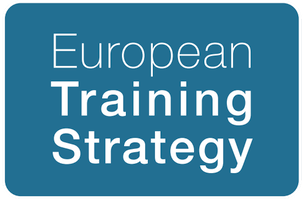
Competences are dynamic and all their elements are interrelated and interdependent. In the competence model, we focus on the following four dimensions: attitudes, knowledge, skills, and behaviours.
Attitudes (the youth worker’s willingness) are the pre-requisite, the foundation for competence development. They lead to Knowledge (gained through experience, books, the Internet, etc.) and Skills (ability to perform a task, to apply knowledge and turn attitudes into actions), which will then lead to appropriate and contextual Behaviour.

Skills are defined as the ability or capacity to perform a task, to apply knowledge, and to turn attitudes into actions. Thus, they describe things that people can do well – also known as expertise. Skills are acquired or learned. While skills are described in the different competence areas, the authors felt the need to underline some of them that either offer a greater level of complexity, represent a somewhat umbrella (encompassing) attitude, or play an interconnecting role.
Variety of methods + -
Being able to choose and work with various methods is a general skill that youth workers regularly apply in their work, e.g., while facilitating learning, designing programmes and co-creating processes in teams and networks. This also includes adapting or developing new methods according to the aims and objectives of the project and in alignment with the needs of the situation and the target groups (e.g., young people, their communities, partners).
Tensions and conflicts management + -
Non-formal learning processes also call for youth workers to be able to deal with tensions and conflicts within groups and teams. The capacity to analyse, moderate and transform such situations within groups and teams is also an intercultural competence.
Dealing with emotions + -
Working with human beings in processes of learning where youth workers encourage openness and where people are encouraged to become engaged and share information about their personalities and experiences also means creating space for emotions. Thus, when facilitating but also when working with colleagues, communicating and self-reflecting, youth workers benefit from the skill to deal with emotions.
Language(s) + -
Using language is another more general skill, for communication but also as a part of an intercultural competence. It helps if youth workers working internationally speak another language, which also implies they can understand how it feels to struggle to express one’s thoughts and feelings in a foreign language.
Consider diversity + -
Working with diverse groups is a reality in youth work. Youth workers need to have the skills to do so, to analyse needs, to deal with diversity in all its facets, to empathise and to facilitate processes and organise resources by taking diversity into account.


